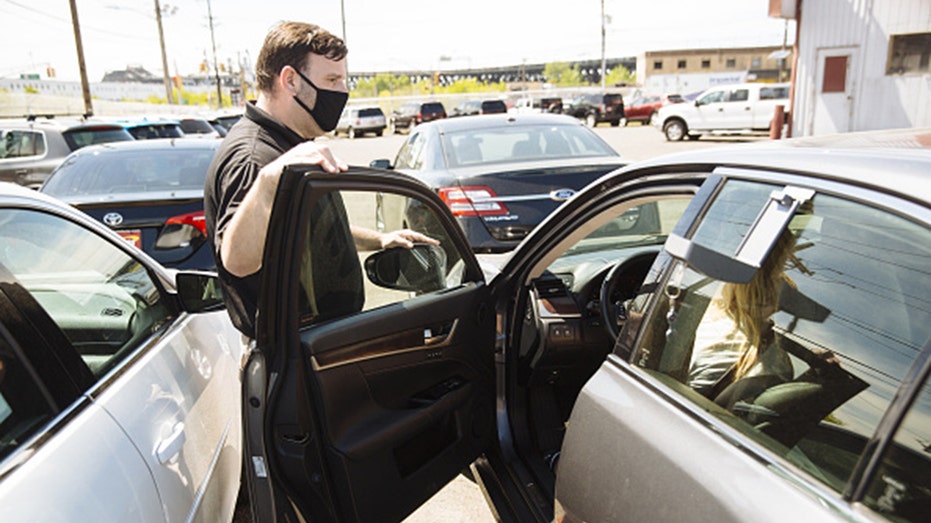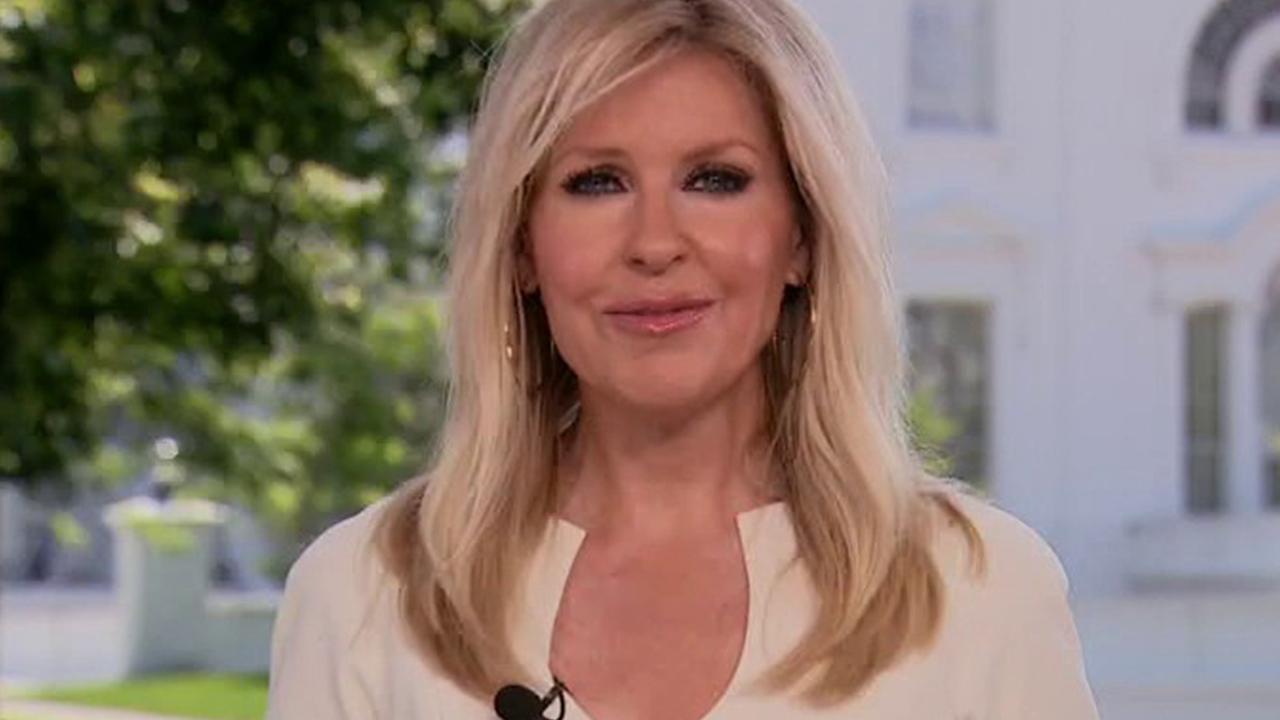Consumer appetite for cars, homes bolsters US economy
Historically low interest rates are luring in auto and home buyers with higher incomes than service-sector workers hardest-hit by pandemic
Consumers have continued spending on big-ticket items such as vehicles and homes during the coronavirus pandemic, helping support the U.S. economy as it battles a surge in cases and renewed business shutdowns.
Historically low interest rates are luring in auto and home buyers, many of whom have higher incomes and firmer job security than low-wage, service-sector workers hardest-hit during the recession, economists and industry experts say.
"Looking at the car sales, looking at the retail activity, looking at the housing data, it has been pointing to a really bigger recovery story, " said James Knightley, an economist at ING Groep NV. "If you've got a job and feel pretty secure and you see your equity holdings rise in value, you're probably still feeling pretty good."
WHAT WILL THE NEXT VIRUS RELIEF BILL LOOK LIKE? CONGRESS MULLS STIMULUS CHECKS, BACK-TO-WORK BONUSES
Mr. Knightley said the big-ticket purchases could weaken if the rise in coronavirus infections and dialed-back state reopenings significantly dampen employment and consumers' ability to spend. Incomes also could take a hit if the federal government doesn't continue providing expanded unemployment benefits to the millions of people still out of work because of the crisis, he added.
"I'm just growing a little bit more nervous that after this good run, we could be in for a softer set of numbers," he said.
Congress is debating whether to extend an extra $600 a week in unemployment benefits provided by the federal stimulus enacted in the spring. The aid is scheduled to expire at the end of July.
Solid spending on durable goods -- typically more expensive products designed to last more than three years -- differs from previous downturns, when consumers sharply pulled back on these larger purchases while continuing to spend at service-sector businesses, according to findings from a Harvard-based nonprofit research group.
EXTRA $600 IN UNEMPLOYMENT BENEFITS ENDS NEXT MONTH AS MILLIONS OF AMERICANS REMAIN OUT OF WORK
Spending on long-lasting, durable goods accounts for about 7% of gross domestic product. Outlays at service-sector businesses comprise a much larger share of economic output and were the hardest-hit businesses by the pandemic. Growth in services will need to rise much more for the U.S. to achieve a full economic recovery. In May, consumers increased their spending on services by 5.4%. A Commerce Department report due out Thursday on retail spending, which covers spending on autos but not houses, is expected to show a June increase of 5.2%, according to a Wall Street Journal survey of economists.

A car dealer wearing a protective mask shows a vehicle to customers at a used car dealership in Jersey City, New Jersey, U.S, on Wednesday, May 20, 2020. Governor Phil Murphy has lifted restrictions on in-person auto sales, provided the businesses fo (Getty Images)
Major auto makers reported steep drops in second-quarter sales, as the pandemic led car plants and some dealerships to close for extended periods this spring.
Still, sales have improved steadily since bottoming out earlier in the pandemic and broadly outperformed expectations this spring and summer. Retail sales of autos were just slightly below pre-virus forecasts in the week ended July 5, according to J.D. Power, an auto-industry research firm.
MANDATING COFRONAVIRUS FACE MASKS WOULD STRENGTHEN US ECONOMY: GOLDMAN SACHS
Brandon Merrill, age 32, of Orem, Utah, and his wife, wanted a vehicle with all-wheel-drive for Utah's snowy winters, and in May they decided to buy their first new car after seeing online vehicle advertisements offering low-cost financing deals during the pandemic.
The loan for the Subaru Crosstrek has an interest rate of 0.9% for 60 months. "Having such a low interest rate for that long a time is unheard of," Mr. Merrill said.
Sales of used vehicles have benefited too, with sales about 20% above J.D. Power's pre-virus forecasts in the week ended July 5, mirroring past downturns when consumers turned to more affordable auto options.
Consumers also are buying pricier vehicles. Sales of new luxury vehicles were up compared with J.D. Power's pre-virus forecast at the beginning of July.
MASK WEARING IS KEY TO US ECONOMIC GROWTH, FED'S KAPLAN SAYS
"The folks who are able to buy an $80,000 premium vehicle every two years, they potentially may still be able to do that," said Thomas King, who leads the data and analytics division at J.D. Power.
Higher-income consumers tend to work in jobs that can more easily be done remotely, providing them with greater job security and confidence to make large purchases during the recession.
Lower-income Americans have suffered the brunt of coronavirus job losses in service sectors like leisure and hospitality. That means they have less income to spend on cars and don't tend to qualify for the incentive offers and financing deals that people with higher incomes tend to, Mr. King said.
Purchases of high-end homes have done relatively well in the U.S. In May, the luxury market outpaced the rest of the housing market in price growth and views, according to Realtor.com.
"Stay-at-home orders and social distancing have put a new value on the extra space," said Danielle Hale, Realtor.com's chief economist. "We're seeing this in the luxury market as well, which could mean there is renewed interest from high-end buyers to find a second-home that is within driving distance from their primary residence."
Home purchases can help propel the broader economy, as they spur spending on home furnishings, building supplies and garden equipment.
New-home sales surged 16.6% in May to an annualized rate of 676,000 units, according to the Commerce Department, just below levels seen before the coronavirus struck the U.S. economy. New homes account for a small slice of the U.S. housing market.
NISSAN ROLLS OUT NEW ELECTRIC CROSSOVER, AIMS TO BOOST IMAGE
Existing-home sales, which account for most purchases, fell in the same month, but economists and brokerages said they expected purchases picked up in June.
Real-estate experts and economists point to a rise in mortgage applications as a sign the broader housing market, which includes previously owned homes, is seeing heightened activity.
"It's been an insane real-estate market where people are just itching to buy homes, and there's not enough of them," said Tony Orlando, a Detroit-based Redfin Corp. agent.
He said homes across price points in the Detroit area have seen strong demand, particularly more affordable ones. Mr. Orlando was recently waiting for his client to arrive at a viewing for a $350,000 house in Troy, Mich., that was just put on the market. During a 30-minute window, he noted about 15 groups of people filtered in and out of the home.
"Buyer demand is out of control," Mr. Orlando said. "There's not enough houses."
Write to Sarah Chaney at sarah.chaney@wsj.com




















